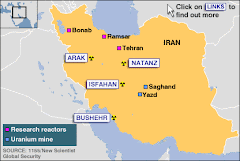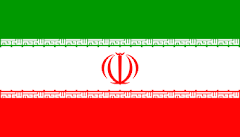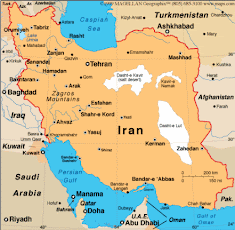
Hillary Clinton has issued a stark warning to Iran, as Democrats in Pennsylvania vote to choose between her and Barack Obama to run for president.
She said the US would attack, and could "obliterate" Iran, if it launched a nuclear strike on Israel.





















 TEHRAN (AFP) — Iran on Tuesday dismissed the latest UN Security Council sanctions over its nuclear programme as "worthless", vowing to press on with the contested drive which the West fears could be used to make weapons.
TEHRAN (AFP) — Iran on Tuesday dismissed the latest UN Security Council sanctions over its nuclear programme as "worthless", vowing to press on with the contested drive which the West fears could be used to make weapons.


Iran still wants to continue its nuclear program even though there are so many opposed to it. They see it as a need as other countries see it as a problem.
 Parvin Ardalan, a leading Iranian women's rights activist, has won the Palme Award for her work and commitment to human rights.
Parvin Ardalan, a leading Iranian women's rights activist, has won the Palme Award for her work and commitment to human rights. 



 Iran is urging the UN Security Council to stop Israel threatening military action against its nuclear programme.
Iran is urging the UN Security Council to stop Israel threatening military action against its nuclear programme.
 In yet another verbal attack against Israel, Iranian President Mahmoud Ahmadinejad called the Jewish state a "filthy bacteria" whose sole purpose was to oppress the other nations of the region.
In yet another verbal attack against Israel, Iranian President Mahmoud Ahmadinejad called the Jewish state a "filthy bacteria" whose sole purpose was to oppress the other nations of the region.





 South Africa has raised concern on new punitive measures against Iran, in a resolution currently before the United Nations Security Council's (UNSC), regarding the suspected use of nuclear weapons.
South Africa has raised concern on new punitive measures against Iran, in a resolution currently before the United Nations Security Council's (UNSC), regarding the suspected use of nuclear weapons.







